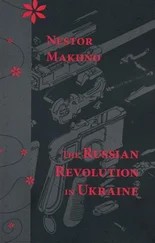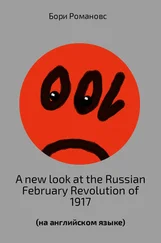Richard Pipes - The Russian Revolution
Здесь есть возможность читать онлайн «Richard Pipes - The Russian Revolution» весь текст электронной книги совершенно бесплатно (целиком полную версию без сокращений). В некоторых случаях можно слушать аудио, скачать через торрент в формате fb2 и присутствует краткое содержание. Жанр: Старинная литература, на английском языке. Описание произведения, (предисловие) а так же отзывы посетителей доступны на портале библиотеки ЛибКат.
- Название:The Russian Revolution
- Автор:
- Жанр:
- Год:неизвестен
- ISBN:нет данных
- Рейтинг книги:3 / 5. Голосов: 1
-
Избранное:Добавить в избранное
- Отзывы:
-
Ваша оценка:
- 60
- 1
- 2
- 3
- 4
- 5
The Russian Revolution: краткое содержание, описание и аннотация
Предлагаем к чтению аннотацию, описание, краткое содержание или предисловие (зависит от того, что написал сам автор книги «The Russian Revolution»). Если вы не нашли необходимую информацию о книге — напишите в комментариях, мы постараемся отыскать её.
The Russian Revolution — читать онлайн бесплатно полную книгу (весь текст) целиком
Ниже представлен текст книги, разбитый по страницам. Система сохранения места последней прочитанной страницы, позволяет с удобством читать онлайн бесплатно книгу «The Russian Revolution», без необходимости каждый раз заново искать на чём Вы остановились. Поставьте закладку, и сможете в любой момент перейти на страницу, на которой закончили чтение.
Интервал:
Закладка:
Displeased by this turn of events, the socialists on the organizing committee issued on March 4, in the name of the student body, a Manifesto that claimed the events of February 8, 1899, were merely
one episode of the regime that prevails in Russia, [a regime] that rests on arbitrariness, secrecy [
bezglasnost’
] and complete lack of security, including even the absence of the most indispensable, indeed, the most sacred rights of the development of human individuality …
The Manifesto called on all the oppositional elements in Russia to “organize for the forthcoming struggle,” which would end only “with the attainment of its main goal—the overthrow of autocracy.” 8In the judgment of the police official reporting on these events, this Manifesto was not so much the expression of student disorders as a “prelude to the Russian Revolution.” 9
The episode just described was a microcosm of the tragedy of late Imperial Russia: it illustrated to what extent the Revolution was the result not of insufferable conditions but of irreconcilable attitudes. The government chose to treat a harmless manifestation of youthful spirits as a seditious act. In response, radical intellectuals escalated student complaints of mistreatment at the hands of the police into a wholesale rejection of the “system.” It was, of course, absurd to insinuate that student grievances which produced the university strike could not be satisfied without the overthrow of the country’s political regime: restoring the 1863 University Statutes would have gone a long way toward meeting these grievances, as most students must have believed, since they returned to classes following the appointment of the Vannovskii Commission. The technique of translating specific complaints into general political demands would become a standard procedure for Russian liberals and radicals. It precluded compromises and partial reforms: nothing, it was alleged, could be improved as long as the existing system remained in place, which meant that revolution was a necessary precondition of any improvement whatsoever.
Contrary to expectations, the Vannovskii Commission sided with the students, placing the blame for the February events on the police. It concluded that the strikes were neither conspiratorial in origin nor political in spirit, but a spontaneous manifestation of student unhappiness over their treatment. Vannovskii proposed a return to the 1863 University Statutes, as well as a number of specific reforms including the legalization of student assemblies and zemliachestva , reducing the amount of time devoted to the study of Latin, and abolishing the Greek requirement. The authorities chose to reject these recommendations, preferring to resort to punitive measures. 10
On July 29, 1899, the government issued “Temporary Rules” which provided that students guilty of political misconduct would lose their military deferments. At the time of publication, it was widely assumed that the measure was intended to frighten the students and would not be enforced. But enforced it was. In November 1900, after a year and a half of quiet, fresh university disturbances broke out, this time in Kiev, to protest the expulsion of two students. Several universities held protest meetings in support of Kiev. On January 11, 1901, invoking the July 1899 ordinance, Bogolepov ordered the induction into the army of 183 Kievan students. When St. Petersburg University struck in sympathy, 27 of its students were similarly punished. One month later, a student by the name of P. V. Karpovich shot and fatally wounded Bogolepov: the minister was the first victim of the new wave of terrorism which in the next few years would claim thousands. Contemporaries regarded Bogolepov’s measures against the students and his assassination as marking the onset of a new revolutionary era. 11
More university strikes followed at Kharkov, Moscow, and Warsaw. Hundreds of students were expelled by administrative procedures. In 1901, hoping to calm the situation, the government appointed Vannovskii, then seventy-eight years of age, to take Bogolepov’s place. Vannovskii introduced modifications in the university rules, authorizing student gatherings and relaxing the ancient language requirements. The concessions failed to appease the students; indeed, student organizations rejected them on the grounds that they indicated weakness and should be exploited for political ends. 12Having failed to calm the universities, Vannovskii was dismissed.
Henceforth, Russian institutions of higher learning became the fulcrum of political opposition. Viacheslav Plehve, the arch-conservative director of the Police Department, was of the opinion that “almost all the regicides and a very large number of those involved in political crimes” were students. 13According to Prince E. N. Trubetskoi, a liberal academic, the universities now became thoroughly politicized: students increasingly lost interest in academic rights and freedoms, caring only for politics, which made normal academic life impossible. Writing in 1906, he described the university strikes of 1899 as the beginning of the “general crisis of the state.” 14
The unrest at institutions of higher learning occurred against a background of mounting oppositional sentiment in zemstva , organs of local self-government created in 1864. In 1890, during the era of “counterreforms,” the rights of zemstva were restricted, which caused as much unhappiness among its deputies as the 1884 University Statutes did among students. In the late 1890s, zemtsy began to hold semi-legal national conclaves with political overtones. 15
The government at this point had two alternatives: it could seek to placate the opposition, so far confined mainly to the educated elements, with concessions, or it could resort to still harsher repressive measures. Concessions would have certainly been the wiser choice, because the opposition was a loose alliance of diverse elements from which it should have been possible, at a relatively small cost, to satisfy the more moderate elements and detach them from the revolutionaries. Repression, on the other hand, drove these elements into each other’s arms and radicalized the moderates. The Tsar, Nicholas II, was committed to absolutism in part because he believed himself duty-bound by his coronation oath to uphold this system, and in part because he felt convinced that the intellectuals were incapable of administering the Empire. Not entirely averse to some concessions if they would restore order, he lacked patience: whenever concessions did not immediately produce the desired results, he abandoned them and had recourse to police measures.
When in April 1902 a radical student killed the Minister of the Interior, D. S. Sipiagin, it was decided to give the police virtually unlimited powers. The appointment of Viacheslav Plehve as Sipiagin’s successor signaled the beginning of a policy of unflinching confrontation with “society,” a declaration of war against all who challenged the principle of autocracy. During Plehve’s two-year tenure in office, Russia came close to becoming a police state in the modern, “totalitarian” sense of the word.
To contemporaries, Plehve was a man of mystery: even his date and place of birth were unknown. His past has come to light only recently as a result of archival researches. 16Of German origin, he had been raised in Warsaw. He attended law school, following which he served for a time as procurator. His bureaucratic career began in earnest in 1881 with the appointment to the post of director of the newly formed Department of Police, established to fight sedition. He is said to have feigned liberalism to qualify for this post under the relatively enlightened ministry then in office. 17Henceforth, he lived and worked in the shadow world of political counterintelligence. Introducing the technique of infiltration and provocation, he achieved brilliant successes in penetrating and destroying revolutionary organizations. He had excellent understanding of the issues touching on state security, an indomitable capacity for work, and skill in adjusting to the shifting winds of Court politics. The personification of bureaucratic conservatism, he was unwilling to grant the population a voice in affairs of state. Such changes as were required—and he did not oppose them in principle—had to come from above, from the Crown: in the words of his biographer, he was “not so much opposed to change as to loss of control.” 18While intolerant of public initiatives, he was prepared to have the government take direct charge of everything that required reforms in the status quo. The police in his view had not merely a negative function—that is, preventing sedition ( kramola )—but also the positive one of actively directing the forces that life brought to the surface and that left to themselves could undermine the government’s political monopoly. In this extraordinary extension of police functions into the realm of positive management of society lay the seed of modern totalitarianism. Because Plehve refused to distinguish between the moderate (loyal) and radical opposition, he inadvertently forged a united front which, under the name Liberational Movement ( OsvoboditeVnoe dvizhenie ) would in 1904–5 compel the government to give up its autocratic prerogatives.
Читать дальшеИнтервал:
Закладка:
Похожие книги на «The Russian Revolution»
Представляем Вашему вниманию похожие книги на «The Russian Revolution» списком для выбора. Мы отобрали схожую по названию и смыслу литературу в надежде предоставить читателям больше вариантов отыскать новые, интересные, ещё непрочитанные произведения.
Обсуждение, отзывы о книге «The Russian Revolution» и просто собственные мнения читателей. Оставьте ваши комментарии, напишите, что Вы думаете о произведении, его смысле или главных героях. Укажите что конкретно понравилось, а что нет, и почему Вы так считаете.












